

A Capital & Main photo essay honors the American workers whose critical work keeps our nation moving forward.


As COVID-19 surges, service sector workers’ necks are again on the chopping block. Joe Biden’s new programs are 10 long weeks away.
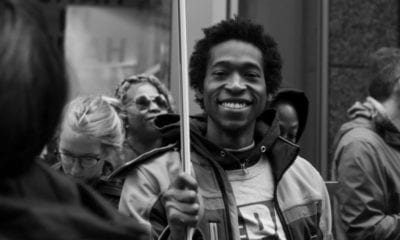

Calvin Wongus has had no trouble finding employment in the tight labor market. But for the poorest workers like himself, the jobs have been low-paying and part-time.


Poorest households see real incomes drop in 13 states, have slower growth than under Obama in 36 states.
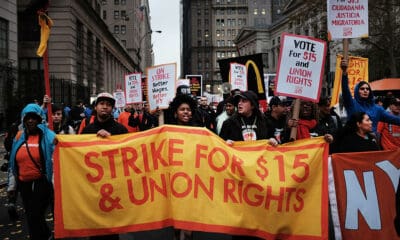
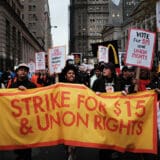
Co-published by the American Prospect
A veteran labor reporter finds hope for unions in boycotts, minimum-wage campaigns and strikes.


For the past two decades, California has been at the cutting edge of social and economic change in America. Now, with Donald Trump about to enter the Oval Office, the Golden State is poised to take on a new role: leader of the anti-Trump resistance.
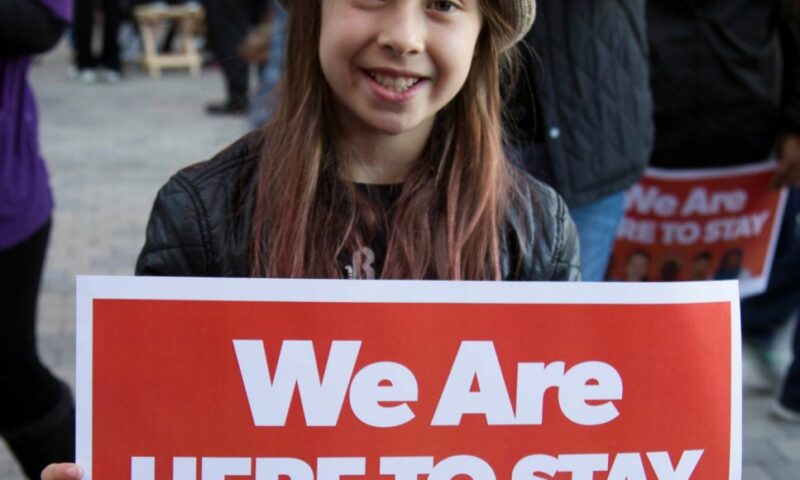
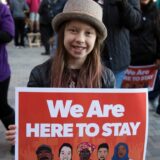
Over the next four years these California leaders will be in the forefront of opposing the Trump administration on immigration, the environment, labor rights and other issues.
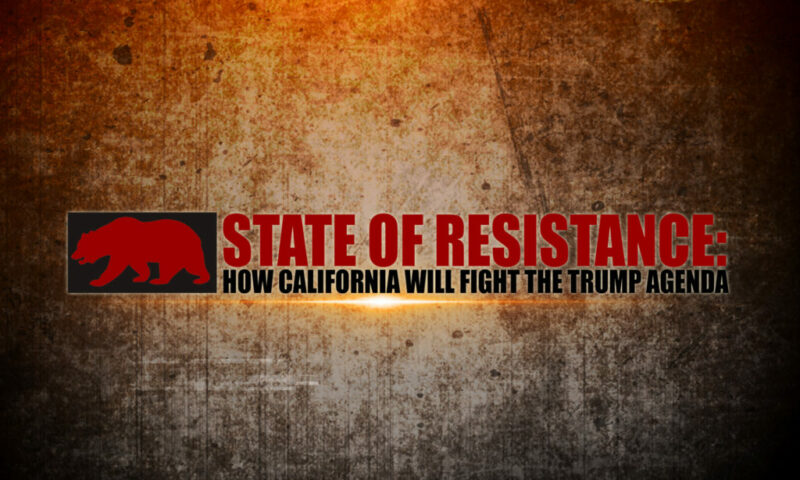

More than any other place, California is well positioned to push back against the agenda of the incoming president. In this special series, Capital & Main examines why and how the Golden State will both lead the resistance to Donald Trump and continue to advance progressive ideas and policies.


There are many student cars parked at and around Sir Francis Drake High School — some of them expensive BMWs, some environmentally correct Priuses. But when Justice Levine attended classes at this Marin County school, she had to walk to Drake, passing rows of expensive San Anselmo homes. That was nearly seven years ago. Then 14, she would wake up in the morning to an empty house and make her own breakfast — her mother had already left for work for the day.
This is an encore posting from our State of Inequality series
Their rented home — one floor of a modest two-story house — was not well-furnished, most of its fixtures were secondhand and it lacked the semblance of interior decorating. Now 21, Levine describes it as a space she and her mother occupied separately for a long time,
» Read more about: In the Midst of Plenty: Food Stamps in Marin County »
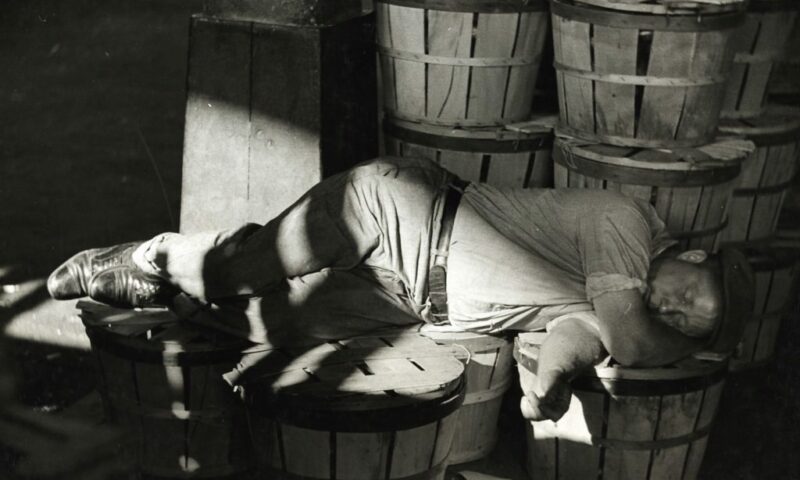

Our friend showed up late in the evening from Northern California to spend a couple of days with us before pushing on in a long-planned vacation. But when I woke up the next morning, he had been up for hours. I found him surrounded by three screens and his cell phone – solving a tech problem for his company.
“Auspicious beginning of a vacation,” I said. “I thought you were supposed to leave all that behind.”
“Oh, no,” he said, “not at my pay level.”
And so it goes. “No rest for the weary and the wicked go free.” That was an oft repeated phrase an early mentor in work mumbled as he sipped on yet another cup of coffee and ran to yet another customer. He may have been obsessive and wired, but he only worked a 40-hour week. None of us worked more, except the boss now and then.


In March, seven class action lawsuits filed in California, Michigan and New York suggested that for the country’s 30 million-strong low-wage workforce, getting one’s paycheck ripped off by some of the largest and wealthiest employers in America is too often business as usual.
Contending that the McDonald’s restaurant chain had been “systematically stealing” from its workers, the suits detailed company-wide practices of managers regularly ordering employees to work off the clock, shaving hours from their time cards and not paying overtime. Three of the California suits also claimed that McDonald’s and its franchise owners illegally altered pay records and denied employees meal periods and rest breaks. Other plaintiffs alleged McDonald’s used a sophisticated computer program that monitored real-time sales volume: When sales dropped below a certain level during any given hour, attorneys said, some managers would routinely order workers from the incoming shift to not punch in for an hour or two until there were more customers.
» Read more about: Wage Theft Confidential: The Worst Scofflaw Industries »


California has roughly a dozen labor codes governing wage-theft on the books, with more proposed each year in the state legislature. Are these laws proving effective? Fausto Hernandez is one worker who doesn’t think they are. The 55-year-old native of Oaxaca, Mexico, has labored in the carwash business for a decade.
“For several years I worked at Slauson Carwash in South L.A. — 10 to 11 hours a day,” he told Capital & Main. “The employer would only pay me for three hours, never for all the hours I worked.”
According to Hernandez, he sought relief by contacting the CLEAN Carwash Campaign, a community coalition led by the United Steelworkers union. The campaign helped him file a claim with the Division of Labor Standards Enforcement (DLSE), an office of the state’s Labor Commissioner.
Workers who take such action face employer retaliation. Hernandez’s employer fired him, he said.
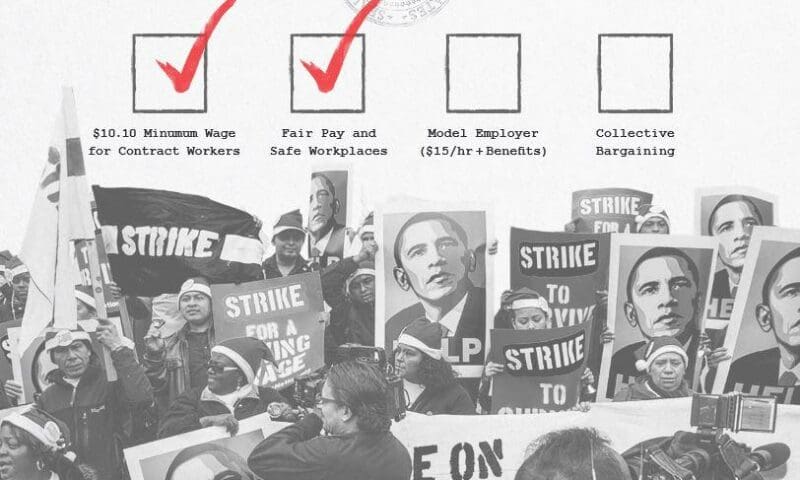
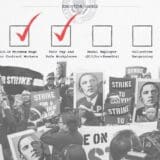
On Thursday, Americans earning low wages from businesses that contract with the federal government walked off the job to urge President Obama to do “more than the minimum” by signing executive orders that ensure workers receive living wages, adequate benefits and a voice on the job.
The organizers of the campaign, Good Jobs Nation, released a report earlier this week explaining why this change is necessary. As one of the nation’s largest employers, the federal government funds nearly two million poverty-wage jobs that pay less than $12 per hour. Unfortunately, many of these workers never receive any benefits such as paid sick leave and are forced to rely on public assistance, which costs more to taxpayers. We already know these same low-wage conditions wreak havoc on state and local economies. Governments may think they are getting a great deal when they outsource services, but when federal contractors fail to pay living wages to Americans providing essential functions,
» Read more about: Low-Wage Contract Workers: Obama Must Do More »


Wage theft is a serious yet seldom-reported crime that victimizes millions of Americans – particularly low-income and immigrant workers. Today, as part of an ongoing examination of workplace issues, Capital & Main debuts a new series focusing on wage theft, beginning with a primer on the problem by Bobbi Murray, followed by Joe Rihn’s profile of a port truck driver who works in an industry where wage theft is a daily fact of life.
The expression “wage theft” is a deceptively gentle term. Perhaps “paycheck mugging” more accurately describes the violence done to the earnings of millions of Americans each year.
If you are a target of wage theft no one pistol-whips you to acquire your valuables–but you definitely get robbed. Every week Los Angeles workers get held up for $26.2 million through unpaid overtime, being pressured to work through unpaid breaks or off the clock;
» Read more about: Wage Theft Confidential: How Your Earnings Are Stolen »


Whenever the subject of raising hourly pay to a livable level comes up in Los Angeles, you can expect two stalwart foes: The Chamber of Commerce and the Central City Association. They both represent business and they always argue that paying working people a wage they can live on will hurt business owners. I cannot recall a time they ever claimed anything else.
But now a new voice from the business community has surveyed the field of low-wage work and come up with a conclusion quite opposite the Chamber’s and the Association’s. A member of the faculty at MIT’s Sloan School of Management (named after a former president of General Motors, no less) compared wages and company results among sales people and check-out clerks. These jobs happen to rank one and two in the number of employees in the country, and they are notorious for low pay, part-time hours and oppressive working environments.


The charges against several McDonald’s franchises were as familiar as items on a Happy Meals menu: “illegally firing, threatening or otherwise penalizing workers for their pro-labor activities,” to quote the New York Times. What was novel about them was the news, first reported Tuesday by Associated Press, that the National Labor Relations Board’s general counsel had found that the fast-food giant is responsible for these crimes when they are committed by the chain’s individual franchise owners. (Of 181 cases that came before the NLRB, 43 were found to have merit, 64 are still pending investigation and the rest were dismissed.)
This is big – very big. If there is any doubt, look no further than the Wall Street Journal’s headline for the story: McDonald’s Ruling Sets Ominous Tone for Franchisers. The reason for this “ominous” forecast is the knowledge that the NLRB’s findings could establish the principle that the corporation and the chain’s franchise owners are “joint employers,” sharing equal responsibility for their employees’ welfare – and equal blame when workers’ rights are trampled on.
» Read more about: NLRB: McDonald’s Is Responsible for Franchises’ Behavior »


Thursday’s one-day strike by fast-food workers may have received relatively little media coverage, but the doubling of strike sites to 100 cities over the previous nationwide actions showed the movement for higher wages and union recognition is growing.
The largest actions were held in New York City and Chicago, where, according to the Guardian UK, “hundreds of protesters gathered outside a McDonald’s at 6:15 a.m. as a large ‘Christmas Grinch’ ambled about in freezing temperatures.”
According to the Seattle Times, about 150 demonstrators rallied at City Hall following an all-day march in icy weather from neighboring SeaTac. In Los Angeles, rallies were held at dawn in South Los Angeles at a Manchester Boulevard McDonald’s, as well as a Sunset Boulevard McDonald’s in Silver Lake, at noon. The movement for fast-food employee rights has the twin goals of raising starting salaries to $15 an hour (at present they typically begin at $7.25) and to win the right to organize workers into unions.
» Read more about: Fast-Food Workers Movement Pushes Ahead »


A spirited group of community, religious and labor activists gathered outside a Western Avenue McDonald’s today to connect their efforts to raise fast-food workers’ earnings with a new study disclosing how dependent such low-income employees are on public assistance.
Among the facts of low-income life that were dug up by the University of California, Berkeley Labor Center report:
“We’ve seen McDonald’s clown the workers and we’ve seen Ronald McDonald – did you like that?” the Reverend Lewis Logan asked at the top of the rally.
» Read more about: McDonald’s Rally Echoes UC Berkeley Fast-Food Study »
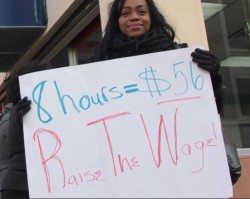
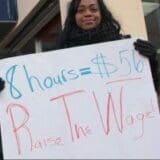
A new study released today by the University of California, Berkeley Labor Center estimates that taxpayers contribute around $7 billion annually to provide basic social service benefits and health care to families of America’s expanding ranks of low-wage fast-food workers. The study, Fast Food, Poverty Wages: The Public Cost of Low-Wage Jobs in the Fast-Food Industry, also found that:
» Read more about: Report: Fast-Food Workers Have One Foot in Poverty »


Under the dark cloud of government shutdowns and other conservative-created mayhem shines a silver lining — the recent gains of California’s low-wage workers. Governor Jerry Brown has signed one law raising the state’s minimum wage and another that provides domestic housekeepers, maids and nannies with the right to get overtime pay. These were huge triumphs in a climate of constriction and budget cuts. Such policies will improve the lives of hundreds of thousands of workers, as well as their families and communities.
These legislative victories are only as powerful as the organizing behind them. It was the huge numbers and commitment of thousands of organized workers (unionized or not) raising their voices that made it impossible for lawmakers to ignore their needs.
The exciting part of activating this new swath of workers is that many have historically not hailed from communities associated with trade unionism. Many come from low-income and/or immigrant communities of color.
» Read more about: California Love: Low-Wage Worker Activism »